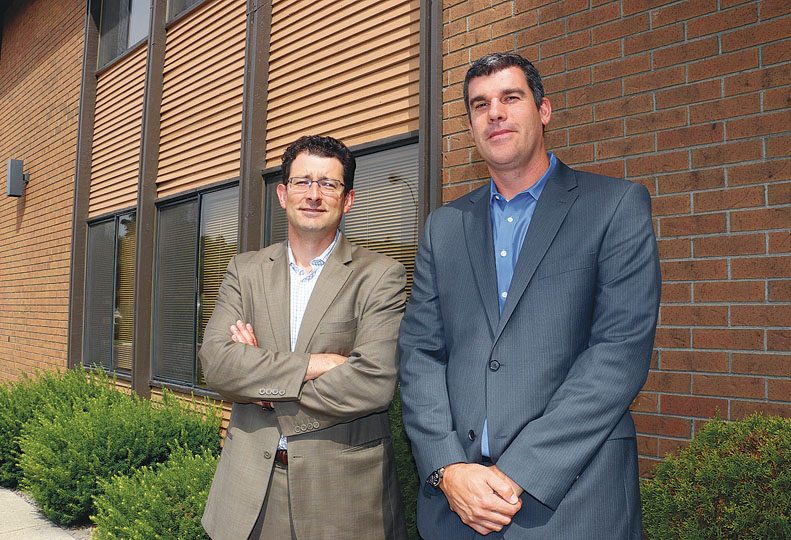
Home » Life sciences recruitment startup launches here
Life sciences recruitment startup launches here
Business plans to hire more staff next month

August 14, 2014
Two veterans of the life sciences industry have partnered to form a new biotechnology and pharmaceutical industry talent recruitment business here, called Celere LLC.
Former Jubilant HollisterStier CEO Marcelo Morales and Justin Rayment, who owns a separate biotech and pharmaceutical industry recruitment firm, are partners at Celere. Morales also recently launched a life sciences venture funding company, called A4Ventures LLC, which is assisting with the initial startup and build out of Celere.
Rayment says Celere was incorporated last month and its website went live a little over a week ago.
Morales says the company’s name comes from the Italian word for “swift,” which is also one of its main tenets.
“Swiftness is one of the key differentiators we’re building into the business,” he says.
Before launching A4 Ventures and Celere, Morales was CEO of Spokane-based pharmaceutical company Jubilant HollisterStier Contract & Manufacturing Services from 2008 until earlier this summer, when he stepped down to start A4 Ventures.
Rayment started Paragon Search Group Inc., another biotech and pharmaceutical industry recruiting company, in 2004. Rayment says he will continue to operate Paragon.
Celere currently is located in the 1,500-square-foot Paragon offices at 10015 N. Division, in the Whitworth Professional Center. Morales says the company will be moving to a larger space shortly. Several options for a new office in the 5,000-to-7,500-square-foot range have been identified, he says.
At this time, the two men are Celere’s only employees. Morales says they expect to start hiring in September and to reach a staff of 10 fairly quickly. Morales also says that Celere is in negotiations with its first few clients.
“We’re negotiating with several right now,” he says. “We did have quite a bit of interest, but we had to go through the company setup structure first.”
Rayment met Morales about six years ago, he says, while Morales was still at HollisterStier. After Morales started A4Ventures, the two decided to combine their life sciences and business backgrounds to launch Celere.
An essential part of Celere’s business model is to move quickly to place an employee with a client, Rayment says. Companies might not have the time or extra staff to recruit employees themselves, he says.
“It might take a standard company three to six months to find viable candidates,” he says. “But the need for them is there today, and it’s costly. That’s why companies use firms like us to find top-tier talent quickly.”
Morales says that Celere’s pricing structure is unique to each client it works with, because it takes over the entire recruitment process for a contracted period of time.
“We do everything from the identification of the need, all the way through the finding of those employees, getting them on board, and making sure they’re happy at that job,” he says. “What we typically do is strike a long-term fee arrangement.”
Celere’s fee can vary by how many employees it places, how highly educated those employees are, and how many locations around the world the client has, among other factors.
Rayment says finding candidates for these kinds of high-placement jobs isn’t always easy.
“It’s very competitive,” he says. “These are the best and the brightest; they aren’t out on the job boards.”
Morales says companies sometimes need to hire quickly to take advantage of funding opportunities.
“Biotech is an attractive industry right now,” he says. “When biotech (companies) get funding, usually it’s for a new study, and they may need to hire 50 people for it very fast. It doesn’t make sense for them to create a recruitment team to get through a (temporary) period of growth.”
While the company will remain headquartered in Spokane, Morales says it likely will have employees in other areas as well, such as San Francisco and Boston. Eventually, the goal is to take the company international, he says.
Rayment says that the company will look to be in Europe, Asia, and India in about three years.
“Those are hotbed areas for biotech and pharmaceutical companies,” he says.
Latest News Health Care Technology
Related Articles
Related Products




